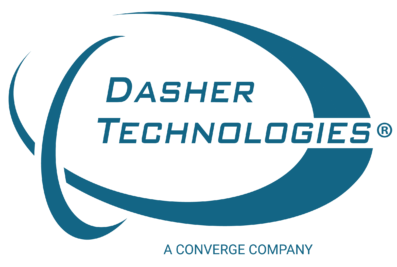HP joined the ranks of cloud computing providers this year with the launch of Helion, an enterprise cloud platform based on OpenStack. The Helion cloud portfolio, which consists of hardware, software and services, goes head-to-head with established behemoths in the cloud marketplace, giving rise to the question: What is the impact on HP’s partners? The outlook so far is a positive one, as HP’s Helion lowers the risk for partners and their customers alike to enter the cloud.
“The introduction of Helion is an enhancement to our services portfolio because it helps us address a segment of the market we haven’t been able to address with our customers before — customers who were looking truly at cloud deployments, whether it was mostly public or hybrid,” explained Al Chien, senior vice president of sales for Dasher Technologies, a Campbell, Calif.-based IT solution provider.
Chien said that Dasher Technologies was “doing a great job” addressing customers’ private cloud needs with HP infrastructure, and the company has some relationships with the likes of AWS and Rackspace. “But the truth of the matter is because we have such a great relationship with HP, now that they have this offering it allows us to more tightly engage and share that branding with our customers,” he said.
Entisys Solutions, a Concord, Calif.-based consultancy and integrator of virtualization solutions, has benefitted similarly. “It’s an expansion of what we’re already doing,” said CEO Mike Strohl. “We’re building stuff on HP infrastructure anyway, so having a deeper, more meaningful approach to how cloud is deployed on the customer base is a good opportunity for us.”
Paul Burns, president of Neovise, a Fort Collins, Colo.-based cloud computing industry analysis firm, acknowledged that a cloud offering from a large vendor like HP helps lower the risk for its partners looking to enter the cloud. “If a partner like HP shows up and provides training and refers potential customers to them and helps them get on board, that’s a pretty big advantage and can help you move ahead and get traction in the cloud.”
Compare that scenario to developing a cloud business independent of a large partner: “If you are on your own, you might want to start by focusing on one cloud, because there is a bit of a learning curve. You need to be [an] expert, then go out and find individual customers and convince them you have the expertise to manage their apps there or whatever it might be. You’re taking a bit of a risk putting effort and money into coming up to speed and maybe selling lower-cost deals to get some reference customers,” Burns said.
HP has done more than reduce the risk to IT solution providers looking to move to the cloud. Being an OpenStack distro, HP Helion addresses interoperability and vendor lock-in concerns that customers may have about going to the cloud. “It’s about the standard that the different cloud providers are using. The whole concept around Helion is providing a standard for cloud providers and their hardware manufacturers around interoperability for private and public clouds,” Strohl said.
Strohl added: “One of the coolest things about the Helion standard is that HP is part of the OpenStack community and has effectively published the standard for other providers. It doesn’t have to be all HP; any manufacturer can be integrated overall. When HP leads the way, making open source integrate across platforms, it’s a great deal and it will have meaning for customers, too.”
Dasher’s Chien confirmed that customers are receptive to HP Helion OpenStack. “The fact that a large manufacturer like HP has this offering and is offering a bridge to mitigate a lot of risk [of moving to the cloud] … is reassuring to them. So yes, they are receptive,” he said.
According to Chien, customers are also attracted to HP’s managed cloud services. “HP provides a lot of software tools that allow customers to onload and offload workloads to the cloud and, from a hybrid perspective, from their own IT burst out to the cloud and scale back down. Those types of automation tools make it really efficient because it’s pretty seamless. … Those are features that are pretty attractive for customers,” he said.
These services could, however, represent a conflict of interest for some HP partners. “There will be partners out there that their revenue depends on managing cloud services and managing apps that run on the cloud for their customers, and maybe they’re doing that for Amazon and Google, and maybe they’re also trying to do it for HP, so there’s that competitive angle with HP offering it directly,” explained Neovise’s Burns.
That said, HP’s managed service offering isn’t of concern for Chien or Strohl. “The majority of work we’re doing is strategy consulting,” Strohl said. “Customers are looking for a formal strategy for the entire enterprise for what they will and won’t do in the cloud, and the Helion cloud message allows more flexibility and scalability, so it’s driving a lot deeper discussions and opportunities as it relates to our client base.”
Chien said that over time he expects there to be additional business opportunities as a result of reselling HP Helion. “The most attractive thing is there are customers that may have workloads that they specifically want to use as a cloud app, but over time they want to build their own infrastructure in-house, so they go from a public cloud environment and into a private cloud running on their own hardware. That’s the opportunity for us over time. We’re going to be their partner to build their own IT,” he said.
Read the full article on Search Cloud Provider.

